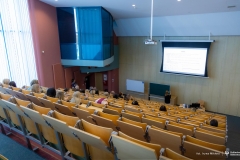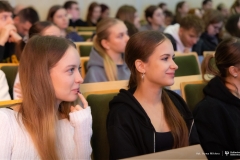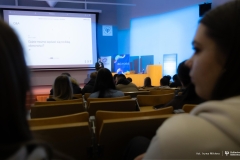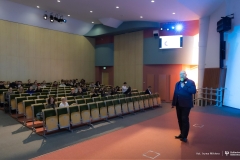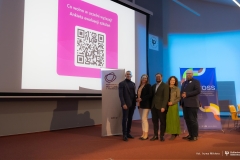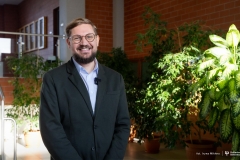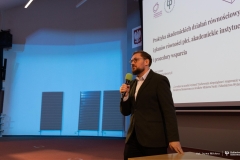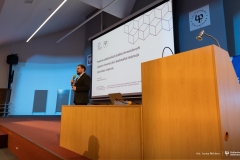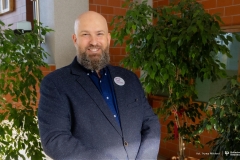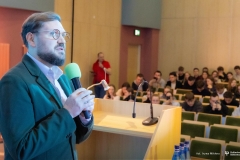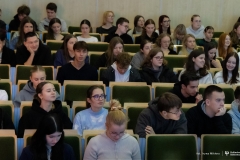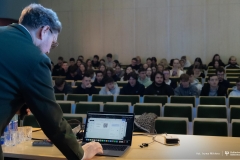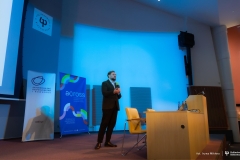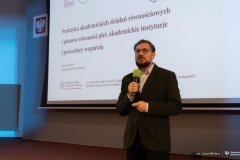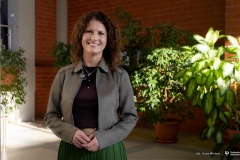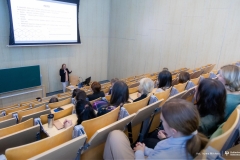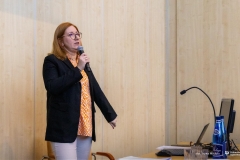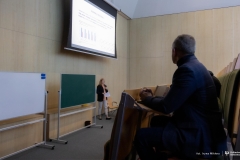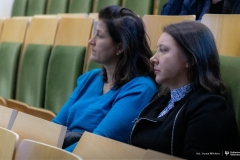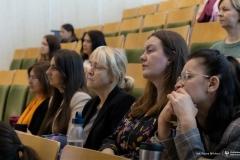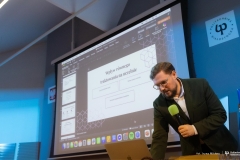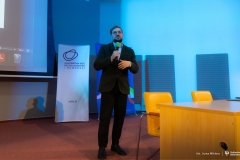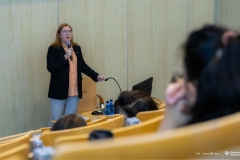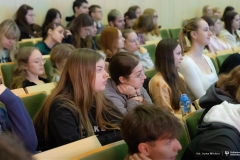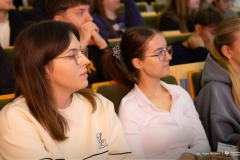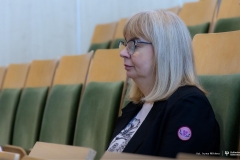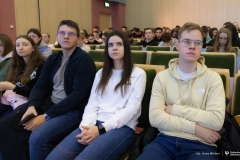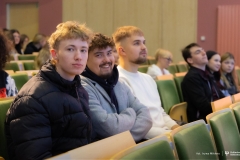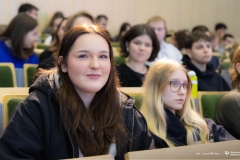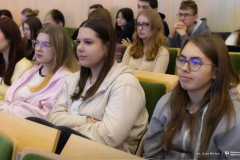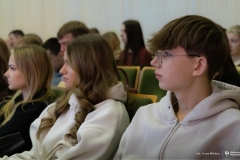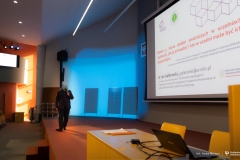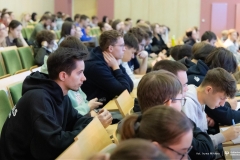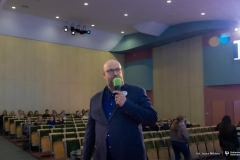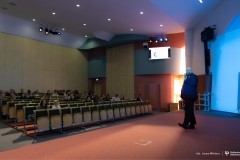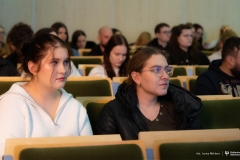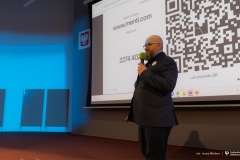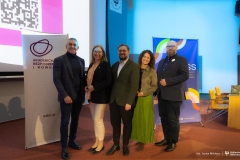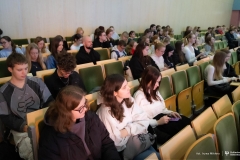What is acceptable at a higher education institution? Bialystok University of Technology on standards and responding to misconduct
06-11-2025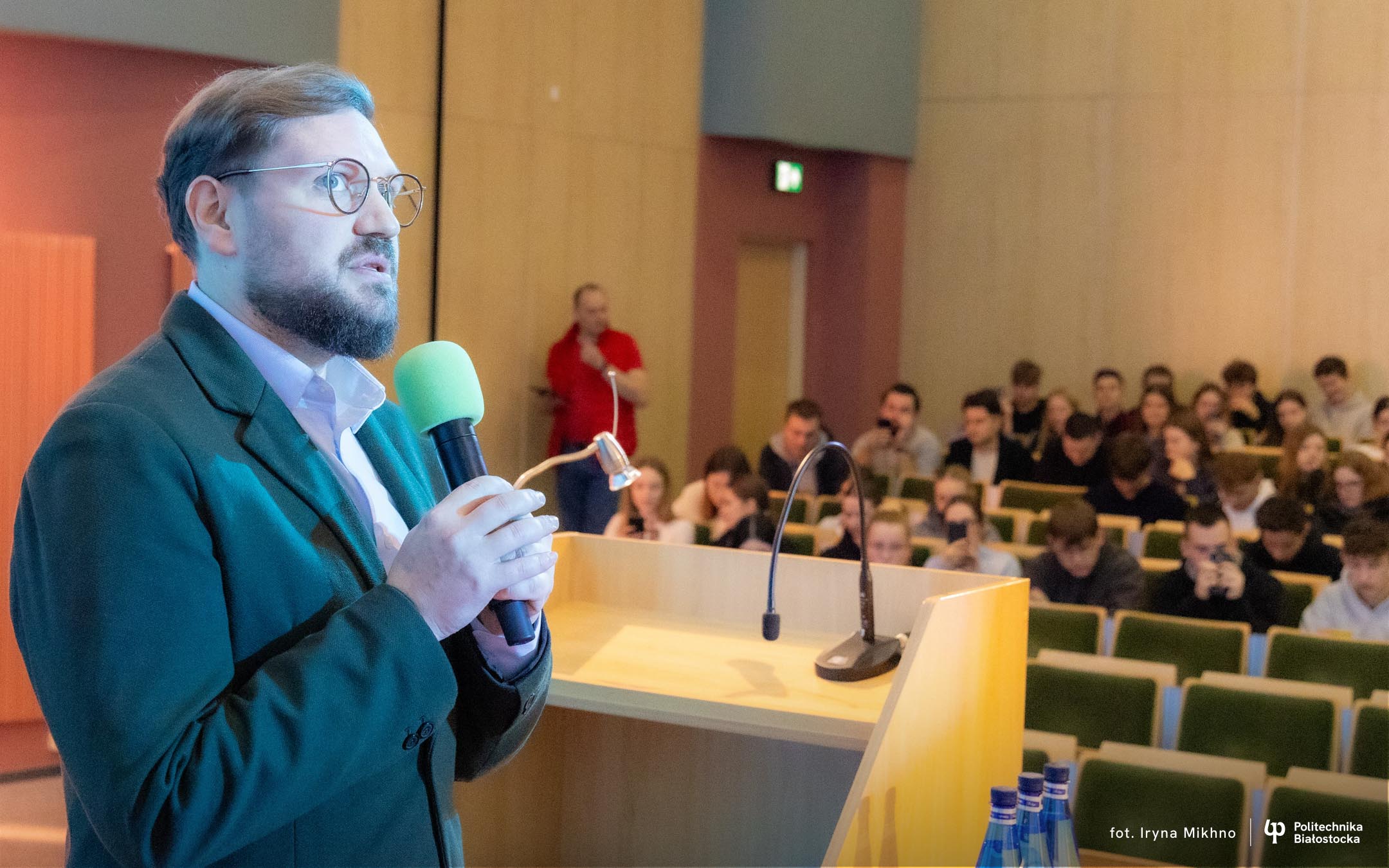
Bialystok University of Technology consistently develops a strategy for creating a friendly and safe academic environment. This approach is reflected in the training for students and University staff organised in cooperation with experts from the Academic Safety and Equality Network. On 5 November 2025 we discussed building an environment free from discrimination and mobbing.
The training “What is acceptable at a higher education institution? Undesirable behaviour and how to respond when it occurs” gathered a large group of staff and students of Bialystok University of Technology. Participants learned practical tools for preventing misconduct, the available response pathways and the rules of disciplinary responsibility.
Equality and safety – the foundation of academic life
The training delivered by the Academic Safety and Equality Network was addressed to all members of the academic community. Its subject concerned not only applicable regulations but also an organisational culture based on mutual respect, empathy and respect for personal dignity.
– Undesirable behaviour at universities covers all forms of misconduct – explains Agnieszka Zatyka-Szlachcic, Student Ombudsperson of the AGH University of Krakow, member of the Board of the Academic Safety and Equality Network. – According to the Polish language dictionary, it means using something beyond measure, or excessive use, for example of power. We want to counteract such behaviour because psychological safety and a friendly environment benefit us all.
Experts from the Academic Safety and Equality Network emphasise that building a culture of respect is key to the success of a university, which, as a centre of knowledge and also an employer, must set clear standards of respect and professionalism. At the same time, equality does not mean uniformity.
– True equal treatment is not about uniformity, but about adjusting measures to a specific situation in order to equalise opportunities, not outcomes – says Artur Lesner, legal counsel and Equality Officer at AGH, trainer of the Academic Safety and Equality Network. – A university has real legal tools to respond effectively in situations where the principles of academic cooperation are breached, and dialogue and mediation are often the first and most effective step.
Psychological safety drives the success of the university
Jan Gałkowski, PhD, member of the Board of the Academic Safety and Equality Network and of the Anti-Discrimination Education Association, draws attention to the ethical and strategic dimension of actions supporting equal treatment in the academic environment.
– A university where people feel safe stands a better chance of success, both in teaching and research. We all need trust and freedom of action, because only then can we develop creativity – emphasises the expert.
He also encourages the undertaking of “watchdog activities” understood as an expression of care and respect.
– Watchdog activities are a way of ensuring the quality of work and studying at our universities. They help all of us build better academic communities and increase the sense of shared responsibility – says Jan Gałkowski, PhD. – This means, for example, listening in, checking how processes proceed, particularly decision-making processes, and sharing this information with a wider group of students and staff. It is very simple. The mere presence of students at Faculty Board or Senate meetings, who listen and pass information on further, is part of watchdog activities. This makes those shaping University policy and its functioning more inclined to consider the voice and opinion of all groups forming the academic community.
Support system at Bialystok University of Technology
The organisation of the training by the Academic Safety and Equality Network was supported on behalf of Bialystok University of Technology by Joanna Szydło, PhD, Plenipotentiary for Equal Treatment and Anti-Discrimination at Bialystok University of Technology.
Szydło emphasises that equality activities at the University must be considered from the perspective of both majority and minority interests: – Respect is owed to every member of the academic community, regardless of their characteristics, such as gender, age, cultural background or stage of life. The academic community should be inclusive and open to all, including people undergoing gender transition.
– Let us not demonise these activities – appeals Joanna Szydło, PhD. – They serve one purpose: that everyone feels safe at our University. This is particularly important in the context of the fact that the University educates young people who will in the future work in various organisations. They will pass on the behavioural standards they learned at Bialystok University of Technology.
The Plenipotentiary for Equal Treatment and Anti-Discrimination at Bialystok University of Technology reminded participants that the University has a well-developed support system. Support can be sought:
- directly from the Plenipotentiary for Equal Treatment and Anti-Discrimination contact: j.szydlo [at] pb.edu.pl
- from the mediator for interpersonal relations
- from anti-mobbing and anti-discrimination committees
- the University has developed anti-discrimination procedures and support procedures for people with special needs (including the possibility of changing personal data for internal communication purposes for persons undergoing gender transition).
Joanna Szydło, PhD, assures that the University’s team approaches difficult matters with tact and empathy, striving for discreet conflict resolution so that those reporting issues do not feel exposed.
More information at: Gender Equality Plan of Bialystok University of Technology.
The initiative “What is acceptable at a higher education institution? Undesirable behaviour and how to respond when it occurs” is implemented by the Academic Safety and Equality Network (ASBiR) in November 2025 and financed by the Ministry of Science and Higher Education.
The event is part of the joint activities of the universities forming the European University Across – Across Alliance – European University, Task 1.4. Inclusion, gender, equality and diversity. The project is co-financed by the European Union.
Author: Monika Rokicka
See the photo gallery from the ASBiR training at Bialystok University of Technology, on November 5, 2025.
